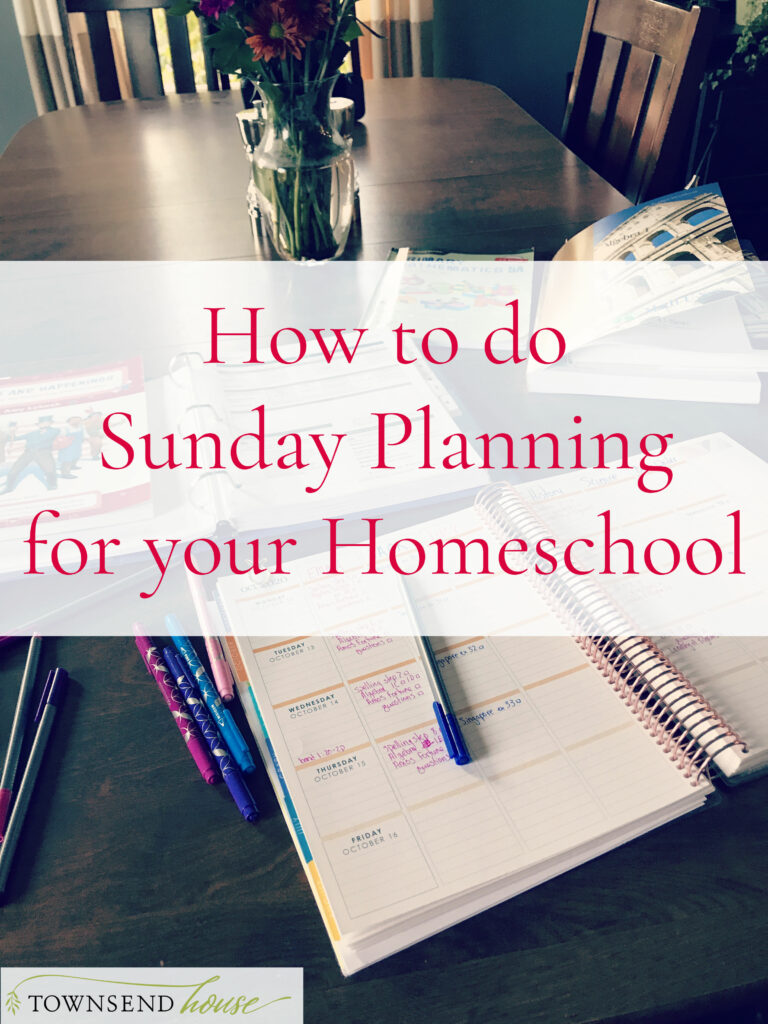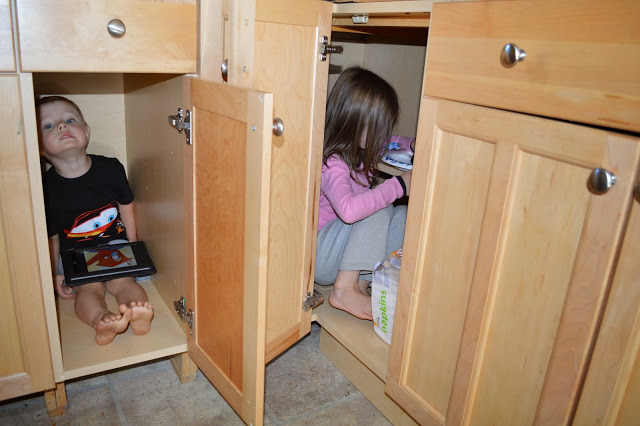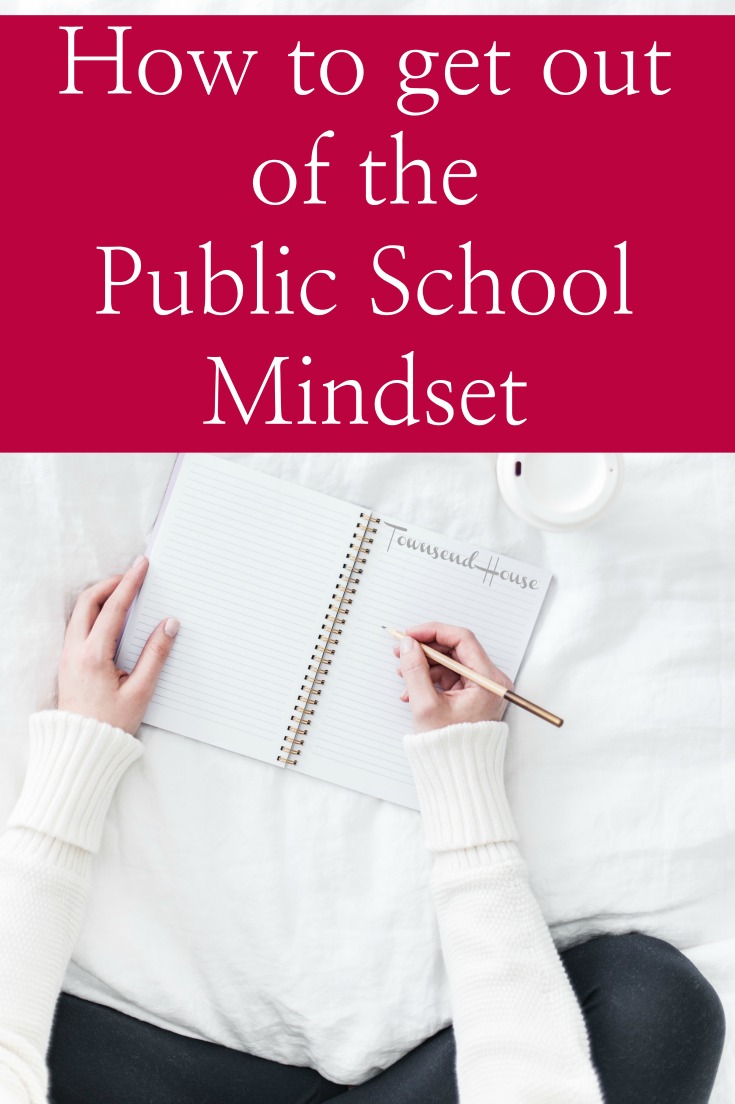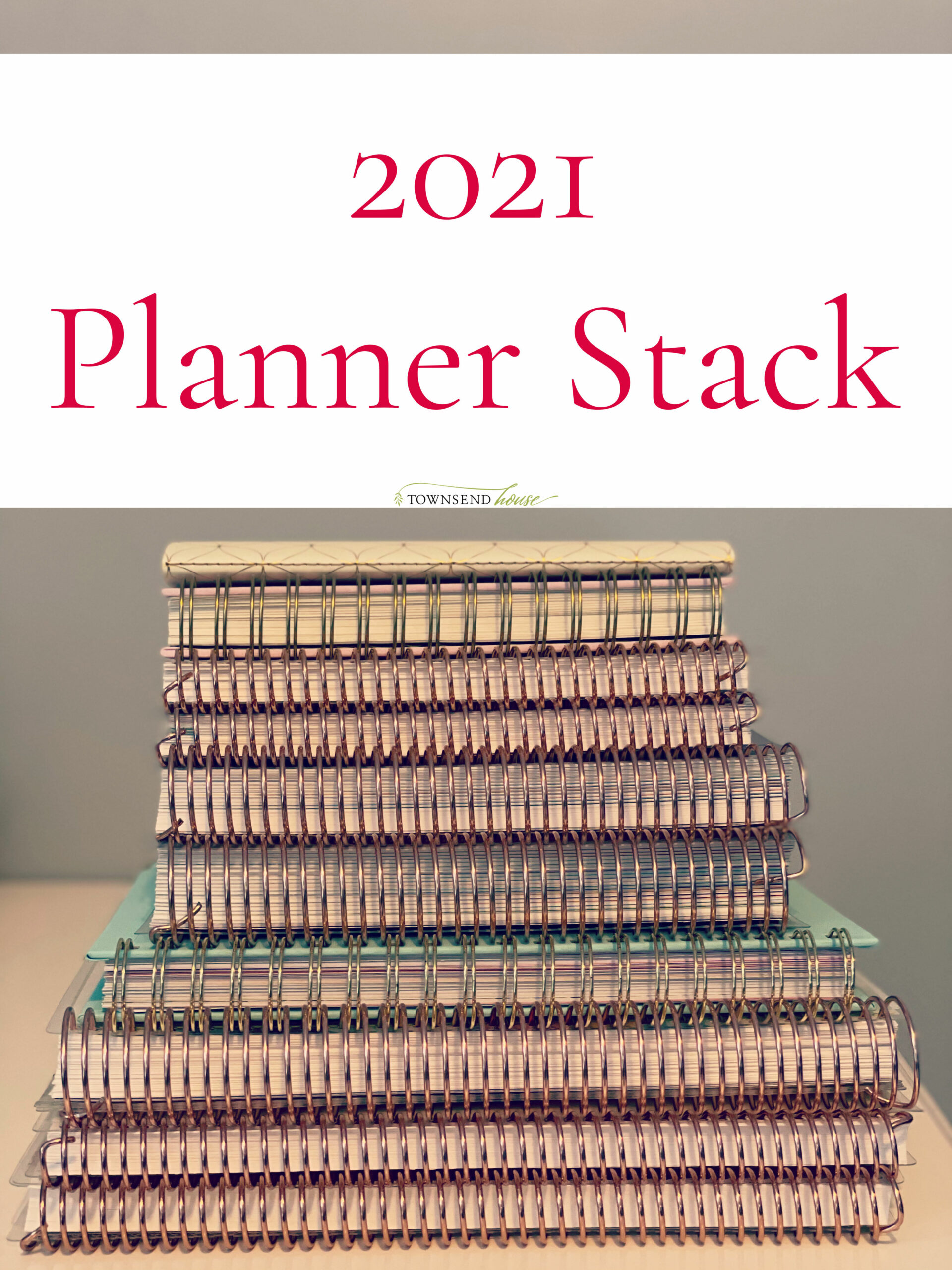How to do Sunday Planning for your Homeschool
Sunday planning has not always been on my radar. In fact, even though I have been a planner girl for a long time, I wouldn’t necessarily sit down to plan out my week. Instead, I wrote things down in my calendar as they came up, and I would keep lists with me throughout the day to day.
It wasn’t until I was pregnant with my third baby that I realized I needed to get a handle on my life – and I re-discovered planning in advance. Taking the time to plan in advance on Sunday helped keep me on track with an infant while trying to keep up with homeschool for my older two kids.
Honestly, I never looked back, and my family and I are better for it.
Why Weekly Homeschool Planning?
Sunday Planning was born out of my need to adjust my expectations when it came to homeschool. I have seen so many wonderful people sit down and plan out their entire homeschool year in advance. And, to a certain extent, I also do that. The difference is that I do not have a year’s worth of lessons sitting on a list somewhere.
Instead, I take each week as it comes. The reason being that I am more likely to finish a week’s worth of homeschooling when I plan just enough. I take into account what we have going on in the week, and then I adjust my expectations as to how much homeschool we will actually get done.
Remember, margin is important.
Sign up below to be notified when my Creating Margin workshop opens!
Sunday Planning: When?
Sunday planning does not happen first thing in the morning. Instead, it happens in the evening. Part of the reason for this is because I take Sunday as a Sabbath day, and partly because I don’t want to think about the week ahead until the end of the weekend. I want to fully absorb any relaxation (ha!) that I can get before starting homeschool again on Monday morning.
In years past, my older kids have been at youth group in the evenings on Sundays. Because of this, it is a great time for me to be able to spread out all the instructor’s guides that I have in order to plan our week ahead.
This post includes affiliate links. If you click on one of these links and make a subsequent purchase I may receive a commission. Read Disclosure.
When my kids are at home, I do tend to have a few more interruptions. However, I have gotten everything down to a pretty good rhythm and it doesn’t take me too long to plan out my week and get everything into my teacher planner.
Where do you Start?
The first thing you will want to do for Sunday planning is to get out all of your planning supplies. For me, that is my teacher planner, and my life planner. I plan out our regular week as well as our homeschool week at the same time. Usually because there is crossover from events/activities in both of my planners.
Then I gather up any homeschool books and resources that we are usiung for our homeschool. Most of our homeschool curriculum comes with some sort of instructor’s guide. Either a grid that lays out exactly what should be done each day, or some sort of order to things. I don’t really follow these plans too closely, except for to keep things in order.
I do have a lovely office to work in, but more often I sit and do my planning while watching football on Sunday evenings. Or I sit at the dining room table because there is so much more space to spread out all of the books.
Sunday Planning: How?
The first part of our how for Sunday planning is to look at what is ahead for the week. Are there activities outside of the house that will take up a considerable amount of time? If there is a morning that we have an activity, I tend to set aside the entire morning for that activity. Most likely we will have a little bit of extra time at the tail end. However, I don’t want to plan to have the kids also work on Math if we are trying to get out the door in a timely manner.
This is where margin again comes in. Just because an activity is only going to be 90-minutes does not mean that you can plan for that activity in a 90-minute block of time. You need the margin in order to make sure you are ready to go to that activity, the travel time it takes to get there, as well as the travel time home. It is OK to put that margin in your schedule. In fact, it is imperative. Otherwise, you will feel behind even though you aren’t really behind. Instead, you didn’t plan enough time for the event itself.
Evaluate Last Week
Once I have all of our outside activities in my planner I will evaluate the previous week. Why? Because there are always going to be items not checked off the list, or something that may have gone over as well as you had hoped. You want to make sure that you account for those challenges, or for work that you wanted to accomplish and didn’t get to.
Make notes of any challenge areas. Was there an activity that your kids didn’t like? Did they not finish the math lesson? Do you need more time for an activity that everyone loved?
Taking note of these items will help you make the little adjustments you need to plan the week ahead. It will also allow you to have some notes for your Monday Meeting. Being prepared for that meeting is part of Sunday planning.
Write out your Lessons
At this point you will want to start transferring your lesson plans for the week ahead into your planner. This can be in a paper teacher planner, it can be in trello, or some other digital planner. It can even be simply in a spiral notebook as a list.
Because I have three kids doing three different grades, having the paper planner helps me. I like to be able to see the big picture of the week ahead.
When you are writing out your plans, make sure you keep in mind the challenges of the previous week. It is easy to plan the same amount of work, even though you didn’t finish half of it. Instead, focus on 2-3 main points that you want to cover each day.
While it is nice to have all of the lesson plans written out and color-coded, if you are not careful with your time, you will not finish. And then what happens is you are in a downward spiral of always being behind.
Sunday Planning: How do I plan the right amount?
It takes a while to be able to find the sweet spot with Sunday planning. You want to make sure that you plan enough to keep everyone busy. But, you don’t want to plan so much that you are constantly playing catch up. This is something that takes time to figure out. It took me a while to figure out, and every year is a new year with a little bit different set of circumstances.
That is part of the reason that I have the Creating Margin Workshop. I needed to figure out a strategy for myself. And this is what helped me finally breakthrough on what I needed to plan for the week, and how to make sure that I was “doing enough.”
I would argue that it is better to plan too little than too much. If you find that your kids are finished with their work quickly in the morning, and they have an entire day ahead of them, great! Let them build confidence in getting through the most important tasks, and then watch them as they explore their own interests.
It doesn’t mean that you have to always plan too little. Instead, you are able to see how long it takes for them to get through the work you have laid out. Then you add in a little bit more, if you feel like it is necessary. Or, alternatively, you see that your kids are happier and learning more because they aren’t bogged down by everything you have set out for them.
How does Sunday Planning Cultivate Simplicity?
The reason is very simple. It gives you a manageable plan for your week ahead. Once you hit the sweet spot as to how much you should plan, your homeschool will be a happier place for it.
It is easy to see the allure of all the beautiful planning grids that are available through curriculum companies, or that you may find from other homeschoolers on the internet. But, there is no one-size-fits-all homeschool plan. It is OK if you read a book faster than what the “plan” tells you. And it is equally OK to take a longer time to savor a book.
It is about getting comfortable with yourself as teacher, and your child as student.
Grids and schedules can be incredibly helpful. They are for me. But, I also understand the need to re-arrange based on my kids, based on our family, based on our lifestyle, and what we have going on in the day-to-day. It doesn’t mean you are failing your kids if you aren’t able to keep up with those schedules, or that you are moving too fast for the schedule. Instead, you are recognizing the unique differences your homeschool has from another.
The Bottom Line
The purpose of Sunday Planning is to have your week ahead laid out nice and neat for you. It isn’t supposed to be stressful. Instead, it is something that helps calm you for the week ahead.
Homeschool mamas spend a lot of time figuring out the “best” way to homeschool. And making sure you find the best way for your individual family is the most important part. Sunday Planning allows you to keep your hand on the pulse of your homeschool. It helps you make minor adjustments when you need to. And it will keep you aware of challenges or things you may want to change as you go through the year.
Do you practice Sunday Planning?






